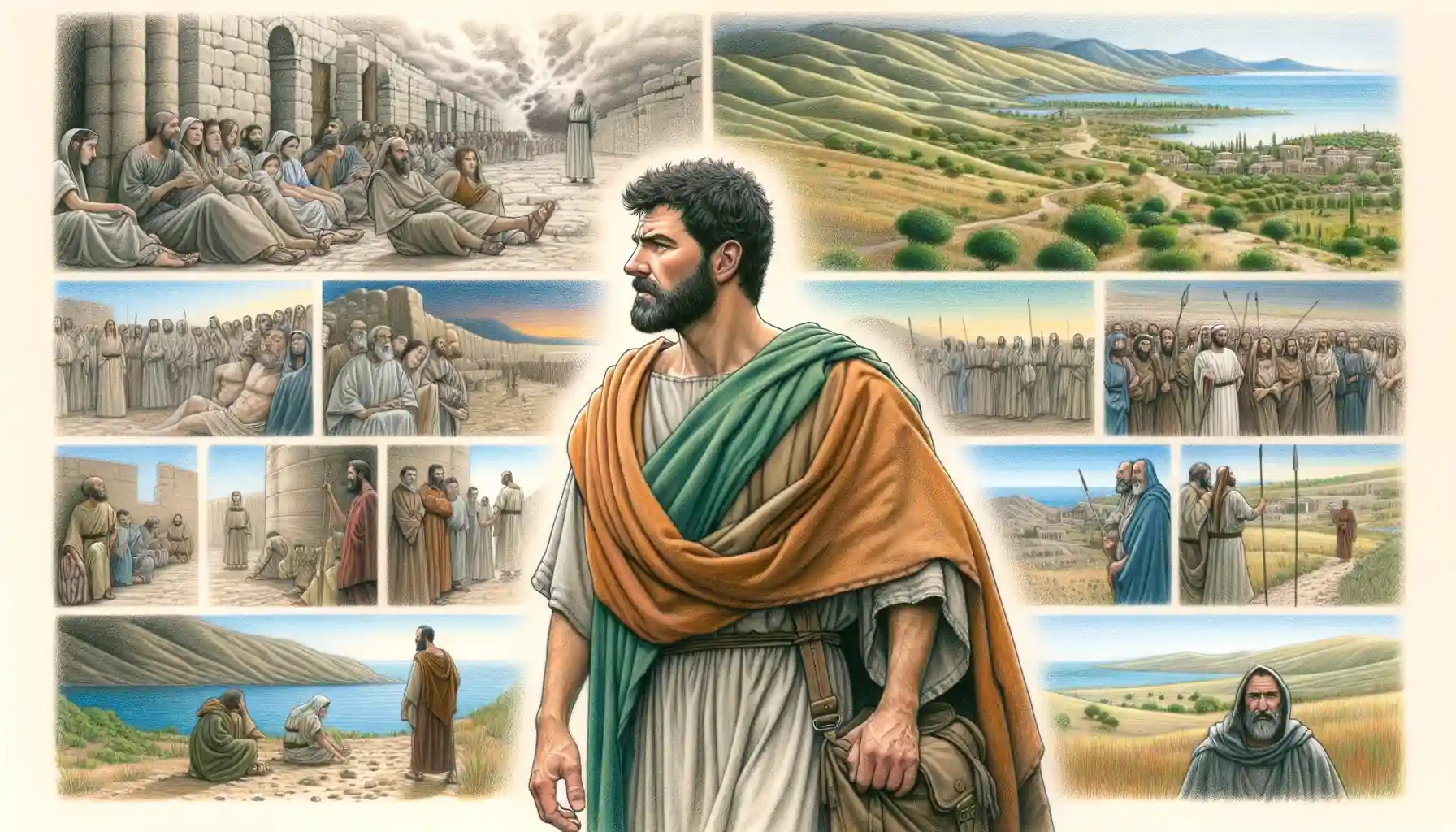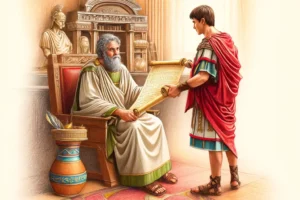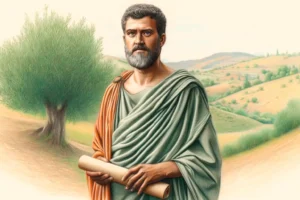
Silas: Paul’s Companion on his Second Missionary Journey
Silas, also known as Silvanus, was a prominent early Christian leader and a key companion of the Apostle Paul during his second missionary journey. His contributions to the spread of the Gospel and the strengthening of early Christian communities are significant in the New Testament narrative.
Quick Facts:
- Background: Silas was a leader in the early Jerusalem church and is first mentioned in Acts 15.
- Council of Jerusalem: He was one of the delegates chosen to deliver the council’s decree to Antioch.
- Paul’s Second Missionary Journey: Silas accompanied Paul after the split with Barnabas.
- Imprisonment in Philippi: Silas and Paul were imprisoned, but an earthquake miraculously freed them.
- Conversion of the Philippian Jailer: Their imprisonment led to the conversion of the jailer and his family.
- Thessalonica and Berea: Silas helped establish and strengthen churches in these cities.
- Reunions: He rejoined Paul in Corinth after being separated in Berea.
- Co-author: Silas co-authored several of Paul’s epistles, including 1 and 2 Thessalonians.
- Peter’s Epistle: He is also mentioned as a faithful brother in 1 Peter 5:12.
- Legacy: Silas’s dedication and leadership played a crucial role in the early church’s expansion.
Background and Early Role
Silas, also called Silvanus in some of Paul’s epistles, was a respected leader in the Jerusalem church. His first significant mention is in Acts 15:22, where he is chosen as one of the delegates to accompany Paul and Barnabas to Antioch, bearing the decisions of the Jerusalem Council. This council addressed the important issue of whether Gentile Christians needed to follow Jewish law, a crucial moment in the early church’s history.
Partnership with Paul
Following the disagreement between Paul and Barnabas over John Mark, Paul chose Silas as his new companion for the second missionary journey (Acts 15:40). This partnership highlighted Silas’s leadership qualities and his dedication to the mission of spreading the Gospel.
Imprisonment and Miraculous Deliverance in Philippi
One of the most notable events during their journey was their imprisonment in Philippi. After casting a spirit out of a slave girl, which angered her owners, Paul and Silas were beaten and thrown into prison (Acts 16:16-24). Despite their circumstances, they prayed and sang hymns to God. An earthquake miraculously opened the prison doors, leading to the conversion of the jailer and his household (Acts 16:25-34). This incident demonstrates their unwavering faith and God’s providential care.
Ministry in Thessalonica and Berea
Silas and Paul then traveled to Thessalonica, where they preached in the synagogue for three Sabbaths, leading to some Jews and a large number of God-fearing Greeks believing in Jesus (Acts 17:1-4). However, opposition from the Jewish community forced them to flee to Berea. In Berea, they found a more receptive audience, and many believed, including prominent Greek women and men (Acts 17:10-12). Despite this, opposition from Thessalonica followed them, causing further disruption.
Reunification in Corinth
After being separated due to persecution, Silas and Timothy rejoined Paul in Corinth (Acts 18:5). Their work in Corinth was significant, as Paul stayed there for a year and a half, teaching the word of God. This period was crucial for the establishment and growth of the Corinthian church.
Co-authorship of Epistles
Silas’s influence extended to co-authoring several of Paul’s epistles. He is mentioned in the salutations of 1 and 2 Thessalonians, indicating his active role in the early church’s correspondence and doctrinal teachings (1 Thessalonians 1:1, 2 Thessalonians 1:1). His involvement in these letters suggests a deep theological understanding and a significant role in shaping early Christian thought.
Mention in Peter’s Epistle
Silas is also acknowledged by Peter in 1 Peter 5:12, where he is described as a “faithful brother.” This commendation from Peter, another leading apostle, underscores Silas’s widespread recognition and respect within the early Christian community.
Legacy and Theological Significance
Silas’s legacy is marked by his resilience, faithfulness, and dedication to the Gospel. His missionary journeys with Paul were fraught with challenges, yet his steadfastness contributed significantly to the spread of Christianity. Silas’s story highlights the importance of perseverance in ministry and the impact of collaborative efforts in advancing the Kingdom of God.
In conclusion, Silas was a pivotal figure in the early church, whose contributions went beyond mere companionship to Paul. His leadership, co-authorship of crucial epistles, and steadfast faith amidst trials made him a key player in the foundational years of Christianity. His legacy continues to inspire believers in their faith and ministry efforts.



